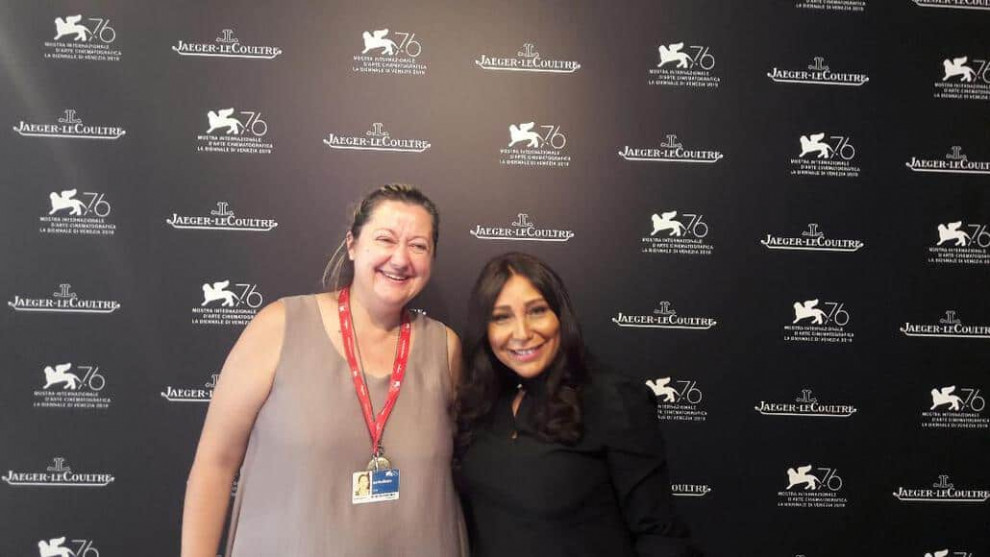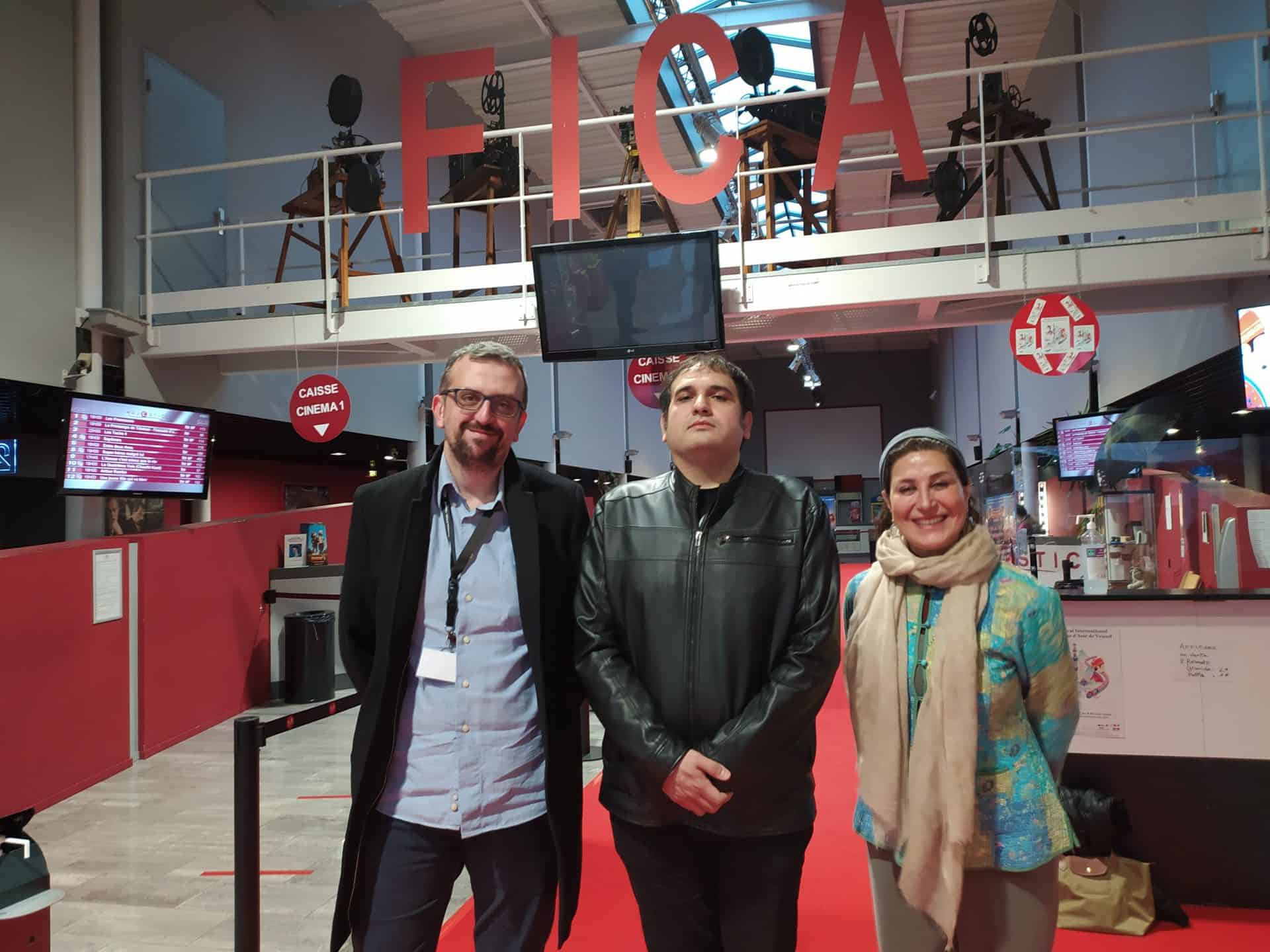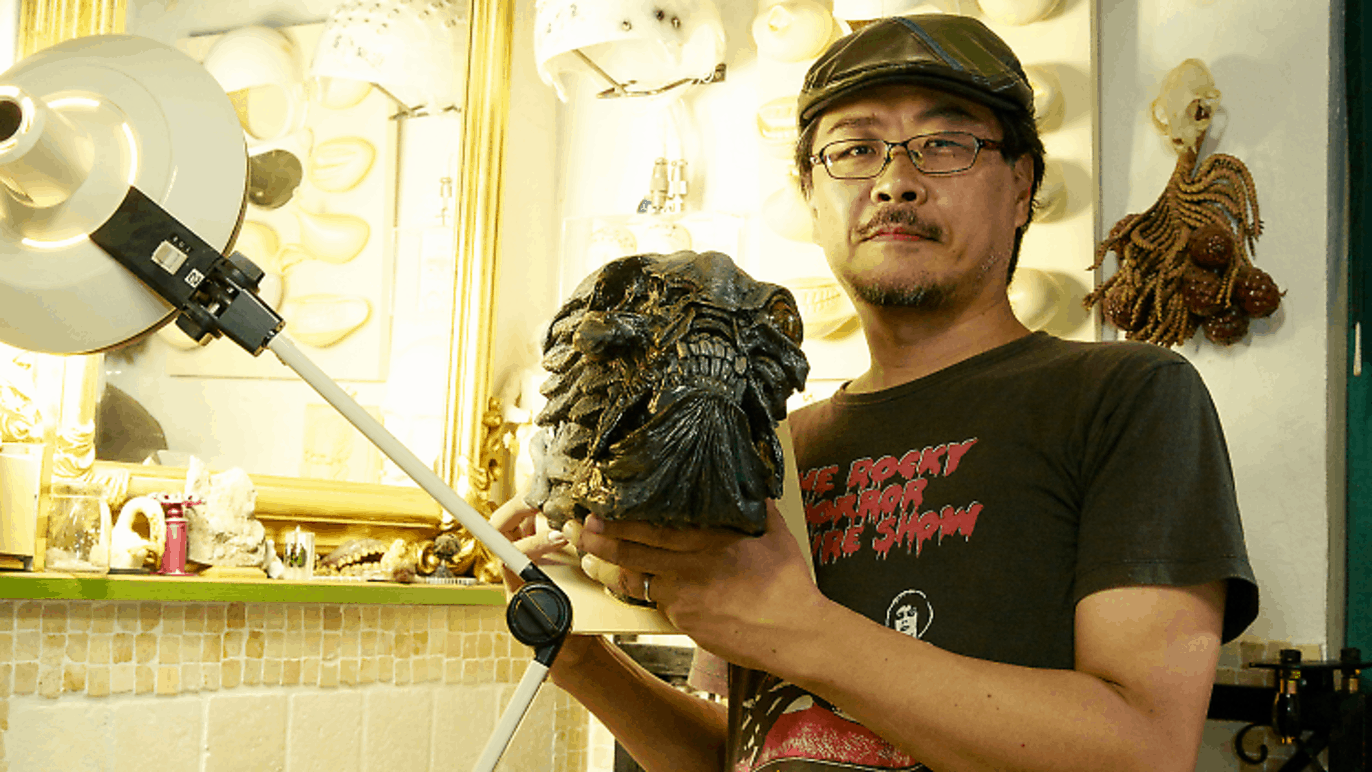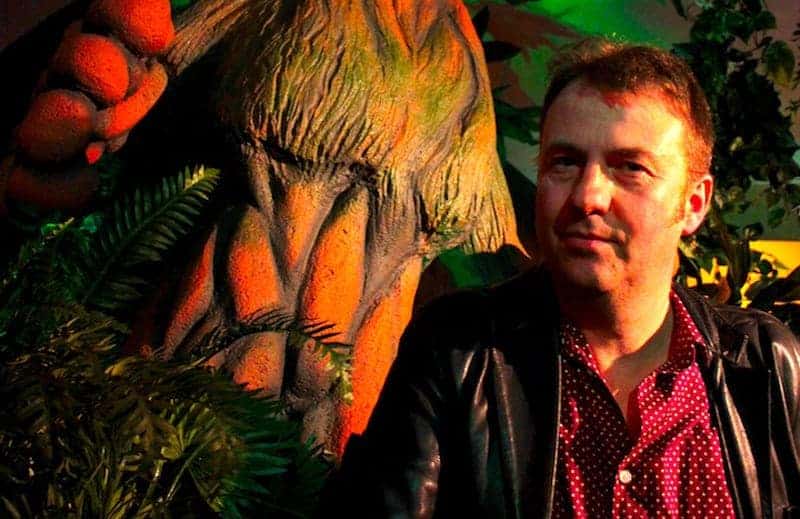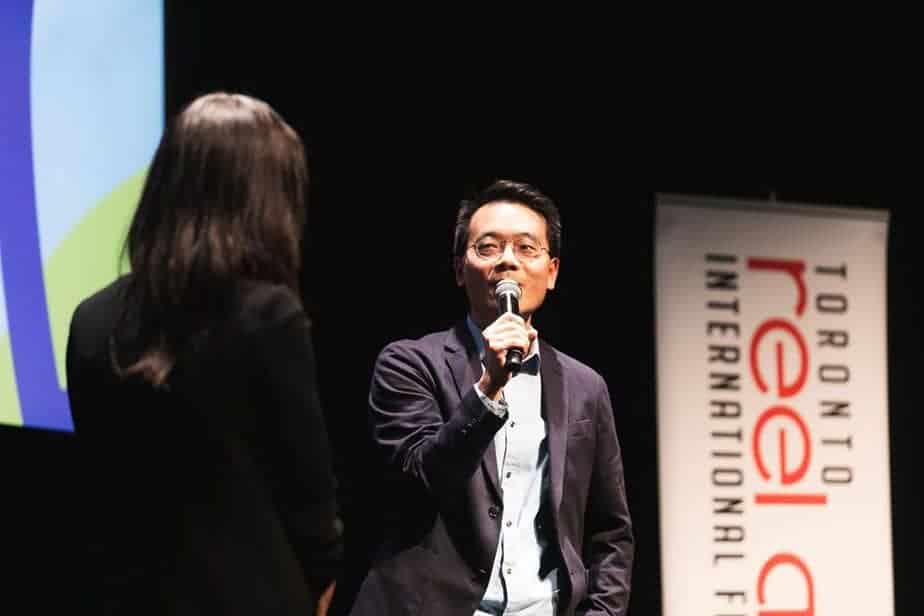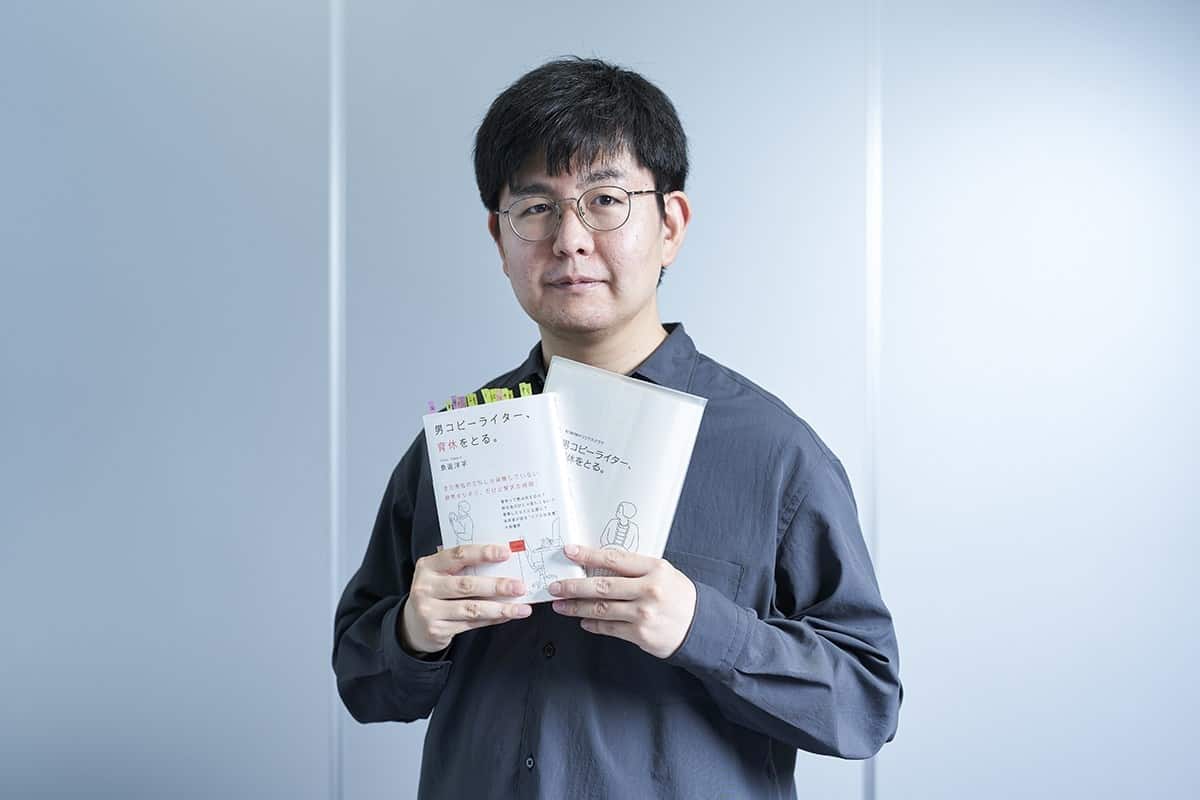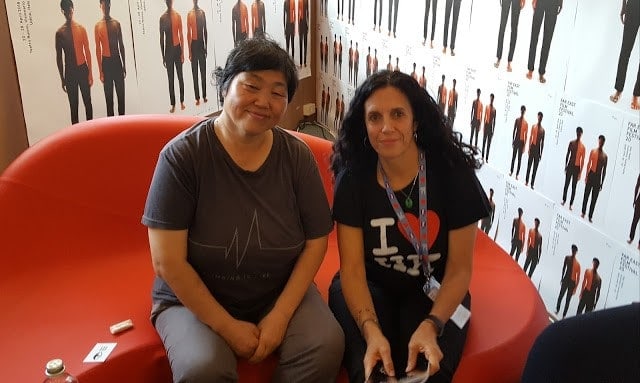“The Perfect Candidate” by the Saudi-Arabian director Haifaa al-Mansour is one of the two films by the female filmmakers in the main competition of the Venice Film Festival, the other being Shannon Murphy with her feature debut “Babyteeth”. This is the second film that Al-Mansour completely shot in her home country, focusing again on strong female characters in a story in which men play only side roles.
Partly based on her own family, the story follows the struggle of a young doctor Maryam (Mila al Zahrani) who's working in an emergency room in a small Saudi-Arabian town. She's not only struggling with the conservative community whose inhabitants get rather examined by male nurses than by a much more qualified female doctor, she's also trying to crack the tough bureaucratic system that denies help in improving the almost impossible working conditions – the road that enables ambulance cars to access the emergency hospital is urgently needed.
“The Perfect Candidate” is screening at
Venice Film Film Festival 2019
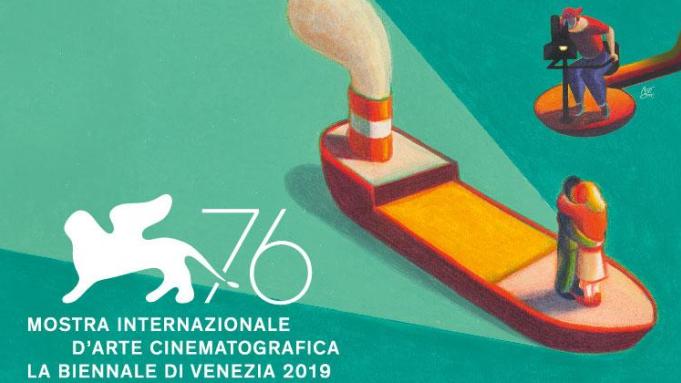
The film, which was being shot shortly after some significant changes were introduced in the Kingdom, jumps at showing them – Maryam's musician father grabs the opportunity to finally tour with his band after the public performances were allowed, and Maryam drives to work every morning (women are allowed to drive only since 2017).
Haifaa Al-Mansour is one of two female filmmakers in Saudi-Arabia, in a country that is just about to develop its film tradition. Asian Movie Pulse has met up with the director at the Venice Film festival to talk about “The Perfect Candidate”, the small steps towards larger liberties and about the power of the sisterhood.
You made some interesting casting choices, with actors who either have TV experience, or barely any.
I was impressed by them. They came in and they were excited to work and ready to roll! But since we don't have professional training or acting schools, and they mainly shoot for TV, you work with them just to bring a bit of the cinematic experience. They'd overact or do something in a different way, but they still picked it up right away. Now we can finally see the Saudi actresses, young women just enjoying going around, and that they are not forced to wear veil. You don't have that kind of thing in Saudi Arabia. For me to see these young women enjoying being out there and enjoying that moment was very special.
In 2017, the 30-year-old ban on cinema in Saudi-Arabia was lift. Can you talk about what it's like for you as a director to operate with the ban and without it? And are your actresses at risk if they are not veiled?
No, they are not at risk at all. Saudi Arabia has changed a lot. Before the ban, the society was very segregated, and there wasn't an easy access to the potential shooting. We could not go and film in many places. We shot this film in a very remote area which is very conservative, but still, the mayor came and thanked us personally for filming in his little town, which is really nice. That is how the civilization and culture cultivate and grow. It's small things like this when a crew, partly German, arrives in a small town, and people come to see what is going on. You are bringing a really small society closer to the world. I think that this is exactly what this film is doing. Our actors speak barely any English and they've never been abroad and to bring them here and making them a part of the conversation, is very special.
We don't have the trained actors, but also no trained DoPs, producers or other film professionals; you would want to have a costume supervisor, a make-up artist, an editor, because you can't always bring everybody from Europe. You can bring head of the departments, but you can't bring everybody. Every department consists of many people. It is difficult to fill those roles, but we made it – we found some amazing Saudis who were willing to go through the training and do a lot of work for minimum money. It's hard. You come in the morning and you have to do plenty, and there are lots of details. To find people who are willing to do that and go through the training was really nice.
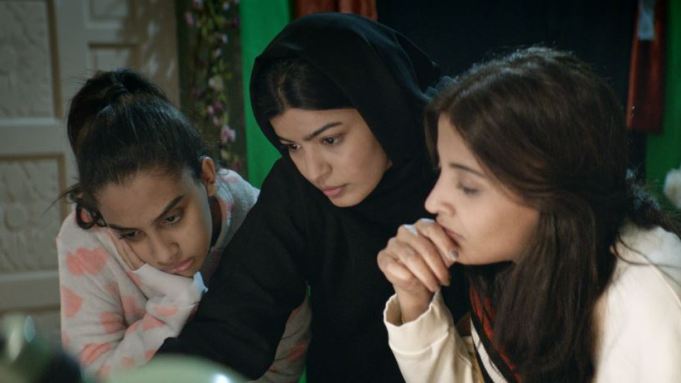
You have only one professional entertainer, so to speak, and she's the popular singer Khadeeja Mua'th.
She is a major star. She only sings at royal receptions, or for very rich people and she earns a lot of money. She's got a beautiful voice and she loved the film. She didn't ask us for a lot of money because she knew that we didn't have any.
The film was also funded by the new Saudi Film Fund. Since it was only very recently established, can you tell us something about it?
It's a public fund like in almost any other country. It is available for the filmmakers form Saudi Arabia. I applied with the script and l was very nervous because it is about a young woman who runs in the politics, and I was obviously trying to push the envelope with it. They approved it and I was really excited, thinking “I hope they read the script”.
In your film, you are showing some of the recent positive changes in the Saudi society.
It is true. If you invest in art, in music and film, that's the right decision. It is fundamental to change every conservative place like Saudi Arabia. Particularly traditionally conservative, religiously very conservative. All those things are slowly becoming more lenient and for regular people, life has become a lot easier.

Can you speak a bit about the role that the cinema plays nowadays in the Saudi society? During the ban, a lot of entertainment that the youth consumed came through Youtube. Since 2017, cinema has come back to the forefront, there is a new film festival, the cinemas are opening.
We still have to see how the local films are playing in Saudi Arabia. But what I think is that, first of all, the Kingdom has a vast majority of young people, and for them, cinema is a novelty. They've been watching television all their lives. Going to the movie theatre is totally opposite, while in the western world people are abandoning cinemas to watch movies in their homes – on Netflix, Prime, or other streaming platforms. Who is going to the movies in the West anymore? In Saudi Arabia, people love the cinema, which is due to the fascination for the new type of entertainment. We still don't have lots of Saudi films, mine is one of the few, but there are many interesting films coming from young filmmakers in terms of how they link their stories and how they are trying to express themselves. It is shaping how we want to tell stories about ourselves and how we want the world to see us, but also starting a dialogue about where we stand, asking existential questions.
How conscientious are you of this balance between pushing the envelope and making compromises, concerning that Saudi Arabia is still developing the cinema culture?
You just try and try. I know that I come from a place that is still very conservative and that I can't say everything that I want, so I have to be conscientious of that and think about how to approach the storytelling. I think that it's important to think about such things and try to work within the boundaries to show something of significance, as much as it is important for people to see such a film. For instance – female stars. It's empowering for women when they see that the leading person is a woman. We always have male stars, even in the Egyptian cinema. They earn good money, and female characters are always beautiful and supportive. He is a macho, and she is behind him. And in my film, a woman is a lead cast, and men are in supporting roles.
How important for you was showing the traditional artistic legacy?
I chose the songs that I grew up with, and which are very dear to me. I wrote to the singer many letters and begged him to let us use the songs, and he was actually nice and gave us permit. It's nice to bring something from home. For me, it is not the personal story, but Maryam's character is based on my younger sister who is a doctor, and my other sister is hustling all the time for money, but they are very good friends. So, for me it was amazing to bring their relationship to the big screen. This is how I connect my experiences with the film. Also, the songs are all related to my childhood.

In “The Perfect Candidate” you are also showing the changed attitude towards the music and the lift of ban on public concerts.
Concerts have become very popular among young people, and it's normal to see people dancing there. This energy needs to go somewhere, otherwise the youth will go and join the ISIS. Let them dance and sing, let them have fun and go to a concert or to the cinema.
Are there actually women in politics in Saudi-Arabia?
We have now the first woman ambassador in the USA, and there are some women who hold important positions, but how they are elected that's another question. How the public would react on female political candidates, would they trust them, would they vote for them?
The way to go there needs a lot of education. It is not going to be easy, but it wasn't easy for many western female politicians either. There is a general problem with public trusting female leaders. People judge them very hard on everything: the way they are dressed, the way they talk, what they stand for, thus creating the gap between them and compassion. The end result is the belief that a woman wouldn't be capable of accomplishing the same thing as a man. Film doesn't do magic tricks in reverting people's opinion, and it's not a remedy for injustice, but you have to show examples like that. We still have a problem watching women on the big screen, much more so in the Middle East. So, this is how I feel – we have a sisterhood everywhere. When I did “Mary Shelley”, I was thinking that the England of her time was pretty much like Saudi Arabia now, because women were molded to fit a certain taste. It is important to start “re-programming” people by giving more and more actresses a significant place which will gradually change people's attitude.
In your film, male patients refuse to be treated by the female doctor. Is that commonplace?
It's a common situation that men refuse to be touched by women, but that is also slowly changing because the society is moving forward. The patient not wanting to be touched by a female doctor has plenty to do with the religion, but also with trust. This is very common that the male patients specifically ask for male doctors, or even nurses. It is hard for women everywhere and we need to work very hard on our self-confidence. Sometimes, when I am called to come up to the stage as the film director, some people are generally perplexed that I am a woman. I hope that one day our daughters won't have to manoeuvre that politics nor to doubt in their craft and talent.
What's coming up next for you?
I want to make a 30-50 million dollars film in Hollywood. It's about time they invest in women. I love American cinema and I watch a lot of American films, but I also like the Dardenne brothers. Their “Rosetta” (1999) is one of the films that have stayed with me for a long time and it made me understand what it means to have a head-strong female character that never gives up. Other than that, there is nothing that specifically inspired me, because there are so many wonderful films out there, many masterpieces.
Are you planning of shooting more films in Saudi Arabia?
Yes – definitely. I'd love to go back home and tell another story about people that I know and understand.
Do you think that filming in Saudi Arabia, you will always have to find the balance between what you'd like to express and what you can say?
Yes, I will need to balance. In one way, you can say that boundaries don't exist, which is not realistic, or you say: “these are the boundaries, and I am doing one thing today, the next tomorrow, slowly adding more and more until boundaries disappear”. I feel that is the way to go. If you just decide to do whatever, nobody will want to hear you in places where you want them to hear you. It is not the question of how to make films, because it's about how to be effective, how to really contribute to change and makes things easier for people I love – for my family, my sisters, more freedom every day.

What is the biggest boundary for making films in Saudi Arabia today?
There are many things. The country is conservative, what we already spoke about but there are also other issues – How to introduce the arthouse movies, how to distribute, how to make the audiences watch local movies and not just the American big productions. People are mainly consuming comedies, TV dramas, and telenovelas. So, the more important question is how to make the movies a part of society and create the future environment for more things to come. Pragmatic thinking is required.
How does the local audience react to national productions?
We don't have many Saudi movies and we were not playing them because it wasn't allowed to, but they played in countries like Bahrain, Kuwait, or generally in countries outside Saudi Arabia. But they don't do anything about the local films, just bringing in the mainstream American movies to the cinema, preferably with Adam Sandler. How to reach people and to make the right connection are the essential questions. I hope that we will screen “The perfect candidate” in Saudi Arabia and I am sure that the audience will enjoy the humour in it.


